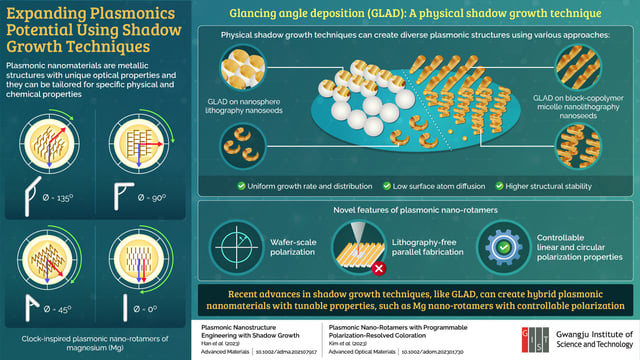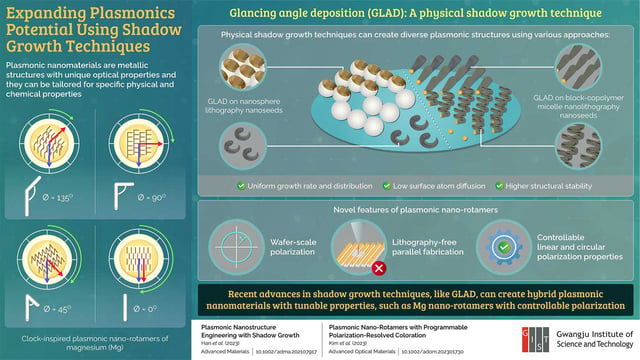Overview
- Researchers at the Gwangju Institute of Science and Technology in Korea have made significant advancements in 'shadow growth' techniques for plasmonic nanomaterials, which involve the creation of nanoparticles with diverse shapes and properties.
- The team has developed a method for large-scale production of nano-rotamers of magnesium with programmable polarization behavior, opening up new possibilities for research applications.
- The 'shadow effect' in this context refers to the presence of 'dark' areas on a surface concealed by 'seed' molecules, making these areas inaccessible for the deposition of vaporized materials.
- The team's research emphasizes a broad range of potential applications, including nano- and micro-robots for wound healing and drug delivery in the human body, photonic devices, and chiral spectroscopy, among others.
- The ability to selectively filter UV light sources and specific visible wavelengths depending on the polarization state can also be used in glasses and windows to protect eyes and skin by blocking UV rays from sunlight.

